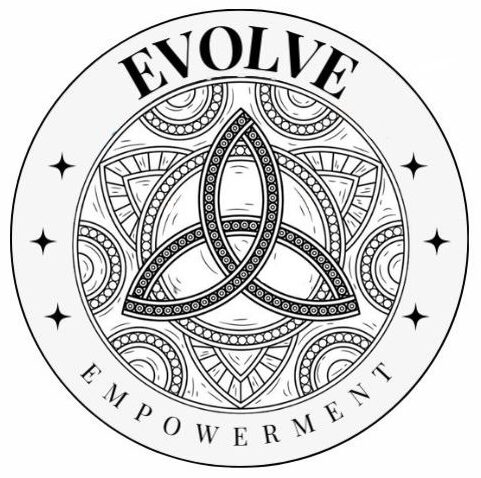Somewhere between working tirelessly for a paycheck and yearning for more than just “getting by,” we begin to wonder—what if life could be different? What if money didn’t rule our choices, but instead, supported our dreams?
That question lit the fire for my own journey toward financial independence, and along the way, I discovered something unexpected: personal growth wasn’t just part of the process—it was the fuel.
In this detailed roadmap, you’ll explore how passive income strategies, mindset work, and essential financial literacy come together to create lasting independence. Whether you’re just starting out or recalibrating mid-journey, you’re in the right place.
Financial Independence. The Starting Point
Let’s break it down. Financial independence isn’t about stashing away millions just for the sake of it (though hey, if that’s your goal, more power to you).
At its core, it’s about freedom—the freedom to make decisions that align with your values and lifestyle, without money being the main obstacle. It’s waking up and knowing you don’t have to clock into a job you hate, or say no to an adventure you crave, just because of your bank account.
Defining Financial Independence: More Than A Buzzword
In a world obsessed with hustle culture and flashy success, it’s easy to reduce financial independence to just another online trend. But real independence runs deeper.
It means that your income, whether from investments, passive streams, or your own business, can support your daily life without needing to trade hours for money. It’s not about extreme frugality or get-rich-quick schemes. It’s about intentional living.
You’re no longer working out of desperation, but out of desire. You’re in control. And this control doesn’t magically appear—it’s built through awareness of your financial habits, clarity on your goals, and steady action. Every choice you make—saving a little more, learning a new skill, launching a side hustle—becomes a building block on your path.
It starts where you are, with what you have. No perfect timing. No ideal conditions. Just a decision to begin.
Why Personal Growth is a Bedrock for Financial Success
Money is math, but success? That’s psychology.
You can learn how to budget, invest, or build a business—but if you haven’t mastered your mindset, you’ll keep running into the same walls. Personal growth isn’t a “nice-to-have” on the journey to financial success; it’s the foundation everything else rests on.

Exploring the Connection Between Financial Security and Personal Development
Ever met someone who earns six figures but lives paycheck to paycheck? Or someone with massive potential who stays stuck in the same cycle year after year? That’s because financial security isn’t just about how much you make—it’s about who you are while making it.
Without self-awareness, money becomes a mirror for our unresolved habits. Without emotional regulation, a market dip can trigger panic selling. Without discipline, a raise turns into a reason to upgrade your lifestyle instead of your investments.
Personal development sharpens the very qualities that financial success depends on—clarity, resilience, focus, and patience. It teaches you to delay gratification, navigate fear, and stay grounded when others are reactive. It fuels the confidence to start that side hustle, negotiate your worth, or invest in your future, even when it’s uncomfortable.
Financial freedom begins in the mind. Character growth reflects growth in net worth. You evolve, your relationship with money evolves, and suddenly the goals that once felt out of reach become natural outcomes of who you’re becoming.
People Who Achieved Financial Independence
From YouTubers who built empires by sharing knowledge, to minimalists who invested wisely and escaped the rat race—every story shares one common thread: growth. A few even used platforms like Wealthy Affiliate to build income while developing their skills.
Setting the Framework: Key Principles to Begin With
Before strategies, spreadsheets, or side hustles come the inner game. The framework for financial freedom isn’t built on numbers alone. It’s rooted in your beliefs, habits, and emotional resilience. Without a solid psychological foundation, even the best financial plan crumbles under stress, fear, or self-sabotage.
The Psychological Foundation: Mindset Shift Towards Financial Freedom
I used to believe money was hard to earn, and even harder to keep. That belief ran my life for years—silently shaping my choices, limiting my courage, and feeding my stress. The real shift began not with a new job or investment, but with a mindset transformation.
I started to believe I could create wealth. I allowed the idea of abundance to take root, even when my bank account said otherwise. That was the breakthrough. Not a motivational quote—but a deep internal pivot.
This isn’t fluff. It’s foundational. If you think financial freedom is “not for people like you,” your subconscious will make sure you’re right.

The Role of Psychology in Financial Success
Money decisions are rarely logical. They’re emotional. From impulse spending to investing out of FOMO, our feelings often hijack our finances. Learning to delay gratification, tolerate discomfort, and manage uncertainty is more valuable than any stock tip.
The market will rise and fall. Life will throw curveballs. But if you can master your inner state, you can make clear, confident decisions no matter what’s happening outside you.
Identifying and Overcoming Financial Blocks
We all carry financial baggage—stories we absorbed from childhood, culture, or past failures. “I’ll never have enough.” “Rich people are greedy.” “I’m not good with money.” These aren’t truths—they’re scripts. And like any script, they can be rewritten.
Journaling can help bring these unconscious beliefs to the surface. Coaching can challenge and reframe them. Inner work, from meditation to therapy, can untangle the emotional patterns that keep you stuck. The goal is to move from scarcity-driven survival to value-driven growth.
Cultivating a Growth Mindset – Key Attributes and Examples
A growth mindset is the opposite of “I can’t.” It’s the belief that skill, wealth, and success are developed, not inherited. That failure isn’t the end—it’s part of the blueprint.
People with a growth mindset aren’t discouraged by setbacks. They study them. They ask better questions. They take another swing. They believe they’re capable of learning how to budget, invest, build, or pivot—even if it takes a few tries.
This mindset opens the door to everything else.
Building Resilience and Perseverance for Long-Term Success
Financial independence is rarely a straight line. There will be months of frustration, unexpected expenses, and even decisions that backfire. Resilience is the trait that keeps you going when progress feels slow and results aren’t instant.
It’s the quiet strength that says, “I’m still in this.” It’s the discipline to show up again and again, especially when it’s not glamorous.
How Emotional Intelligence Affects Your Financial Journey
Emotional intelligence is often the missing piece in financial education. It’s not just about knowing what to do with money—it’s about handling your reactions when things go sideways.
The ability to recognize your emotional triggers, stay calm in conversations about money, communicate your needs, and understand others’ perspectives—this impacts everything. Negotiations, business partnerships, and even managing a household budget become smoother when EQ is high.
Financial intelligence tells you how to build wealth. Emotional intelligence tells you how to keep it—and grow with it.
For more similar articles, visit the website by clicking here
Realizing Potential: Skills and Talents Nurturing
You’re not starting from zero—you’re starting from you. Somewhere inside your lived experience, interests, and natural abilities lies a unique blend of value that the world needs—and will pay for. Financial independence is often less about “finding” opportunities and more about recognizing and nurturing what you already have.
The Importance of Identifying and Leveraging Your Strengths
Maybe you’re a natural communicator. A tech-savvy problem solver. A passionate teacher, writer, or builder. These aren’t just personality traits—they’re potential income streams. Identifying your core strengths and passions helps align your efforts with work that energizes you, not just drains you. Ask yourself: What do people thank me for? What do I lose track of time doing?
Start noticing the skills you take for granted. They could be your launchpad to something bigger.
Investing in Skill Development: Lifelong Learning
In a rapidly changing world, your greatest asset is your ability to learn. Whether you’re leveling up digital marketing skills, diving into investing basics, or taking that first coding class, every new skill increases your earning ceiling.
Make a habit of learning. Take online courses (think Coursera, Udemy, Skillshare), watch YouTube tutorials, read blogs, and listen to podcasts. Consider platforms that teach high-income or scalable skills—copywriting, video editing, email marketing, or even niche areas like Web3 or AI tools.
Remember: You don’t need to master everything—just improve consistently. Progress compounds like interest.
The Role of Networking in Personal and Financial Growth

Skills are powerful, but connections are catalysts. The people you meet often determine the speed and scale of your success. Think about it: most life-changing opportunities come not from cold applications, but from warm conversations.
Attend meetups, mastermind groups, workshops, or even virtual communities. Be curious, share your vision, and offer value first. Whether it’s a mentor, collaborator, client, or partner, your network multiplies what you bring to the table.
And when you help others rise, you rise too.
Tips for Creating Personal Development and Financial Goals
Goals give your growth direction, but they also need soul.
Go beyond generic benchmarks. Yes, make them SMART (Specific, Measurable, Achievable, Relevant, Time-bound), but also make them meaningful. Tie your goals to your values and vision for life. Why do you want financial freedom? What will it allow you to become?
Break big goals into monthly or weekly milestones. Journal your progress. Reflect on what’s working and what isn’t. And when you hit a win, celebrate it. Momentum is built by acknowledging movement.
Exploring Educational Resources: Books, Courses, and Workshops
If you’re looking for where to start or grow next, these resources offer tremendous insight:
- Books:
Your Money or Your Life by Vicki Robin – a classic for reframing your relationship with money.
Atomic Habits by James Clear – a guide to building systems that stick.
Deep Work by Cal Newport – essential for mastering focus in a distracted world. - Courses & Platforms:
- Coursera (Finance, Psychology, and Entrepreneurship tracks)
- LinkedIn Learning (great for soft and technical skills)
- Side Hustle School or Hustle Nation for real-world strategies
- Podcasts:
- ChooseFI – deep dives into financial independence strategies.
- The Tim Ferriss Show – lessons from world-class performers across disciplines.
- The School of Greatness by Lewis Howes – inspiring, mindset-focused conversations.
- Local & Online Communities:
- Join Facebook groups, Reddit threads, or Discord communities in your niche.
- Look for personal growth workshops in your city or virtual summits that align with your interests.
Financial Literacy: The Backbone of Financial Independence
You can’t build wealth without understanding the rules of the financial game. Financial literacy isn’t just about reading the stock market or decoding tax codes—it’s about everyday confidence. It’s about knowing where your money goes, how to make it grow, and how to protect it. Without it, you’re not truly independent—you’re just guessing.
Essential Financial Concepts for Everyday Life
You don’t need a finance degree, but you do need to know a few essential concepts that shape your daily life:
- Compound Interest: This is the quiet force behind real wealth. When your money earns interest—and that interest earns interest—you create exponential growth. Time is your ally here, so the earlier you start, the better.
- Inflation and Purchasing Power: If your money isn’t growing, it’s shrinking. Inflation slowly erodes the value of your cash, which means a dollar today buys less tomorrow. That’s why investing wisely matters—it helps your money outpace inflation.
- Tax Brackets and Deductions: Taxes aren’t just a yearly hassle—they’re a strategic factor. Knowing how your income is taxed and what deductions or credits you qualify for can save you thousands over time.
Understanding these core ideas empowers you to make smarter choices every day—from saving and spending to investing and planning.
Budgeting and Saving: Simple Strategies for Beginners
Budgeting doesn’t have to be boring or restrictive. It’s not about saying “no” to everything—it’s about saying “yes” on purpose. The first step? Awareness. Track where your money goes each month. Use tools like YNAB (You Need A Budget), Mint, or even a basic spreadsheet.
Then, build a plan that pays you first. Treat saving like a fixed bill, not an optional leftover. Automate transfers to savings or investment accounts. Even small amounts, saved consistently, add up.
Budgeting gives your money direction—and that’s the foundation of freedom.
The Importance of Investing – Asset Types and Risk Management
Saving protects your future. Investing builds it. Whether you’re buying stocks, real estate, index funds, or dabbling in crypto, the goal is the same: to make your money work harder than you do.
But investing isn’t gambling. It’s about understanding risk, doing your research, and diversifying wisely. Know the difference between high-risk, high-reward opportunities and long-term, stable investments. The best portfolio is the one you can stick with—even when the market dips.

Navigating the World of Debt – Understanding Good vs. Bad Debt
Debt isn’t inherently bad—it’s how you use it. A mortgage on a home that appreciates in value? That could be a smart move. A student loan that opens the door to higher income? Possibly worth it. But a high-interest credit card debt can fund impulsive purchases? That’s the kind that drags you down.
Understanding the cost of debt—interest rates, terms, and how it affects your cash flow—can be the difference between leverage and liability.
Learn how to use debt strategically, not emotionally.
Crafting a Personal Financial Strategy Aligned with Your Goals
There is no one-size-fits-all path to financial freedom. Your goals, values, and lifestyle should shape your financial strategy, not what influencers, books, or your neighbor suggest.
Start with the big picture. Where do you want to be in five, ten, and twenty years? Do you want to retire early, start a business, travel the world, or build generational wealth? Then reverse-engineer your plan. Structure your budget, income streams, and savings approach to align with your vision.
When your strategy is built around purpose, discipline becomes easier. And financial literacy becomes not just knowledge, but power
Sustaining Growth: Creating a Lifelong Financial and Personal Strategy
Reaching financial stability is a milestone, but sustaining growth is the real art. It’s not just about making money; it’s about building a lifestyle that continues to evolve as you do. A strategy isn’t something you set and forget. It’s a living, breathing part of your life, one that requires attention, adjustment, and alignment with who you’re becoming.
Evaluating and Adjusting Your Financial Plans Regularly
Life isn’t static. Your goals, priorities, and even your income streams will change. That’s why your financial plan shouldn’t be carved in stone—it should be flexible. Set a habit of reviewing your plan quarterly. What worked? What didn’t? Are your savings and investments aligned with your current values? Are you still moving toward your long-term vision?
Small, regular check-ins prevent major course corrections later. And they keep your progress intentional, not accidental.
Embracing a Balanced Lifestyle: Health, Wealth, and Relationships
Financial success means little if it costs you your health or disconnects you from the people you love. It’s not about hustle at the expense of happiness. True wealth lives in the balance.
Take care of your body—it’s your vehicle for everything. Nurture your relationships—they’re your emotional safety net. Your financial strategy should support your well-being, not drain it. A balanced lifestyle is sustainable, and sustainability is what turns short-term gains into lifelong success.
The Role of Mentorship and Community in Sustaining Growth
Growth accelerates when you’re not walking alone. Mentors offer wisdom, shortcuts, and perspective that books and podcasts can’t always provide. Community gives you support, encouragement, and accountability when motivation runs low.
Find someone who’s already done what you’re trying to do. Learn from their experience, not just their success but their mistakes too. And surround yourself with people who challenge you, cheer for you, and hold you to your highest potential. Growth compounds in community.
Exploring Passive Income Opportunities for Steady Cash Flow
Freedom comes when your income isn’t tied to your time. Passive income doesn’t mean “effortless,” but it does mean leverage. You put in the work once, and it keeps giving back.
There are countless entry points—affiliate marketing, digital products like eBooks or courses, dividend-paying stocks, rental properties, royalties, or even staking crypto. Don’t try to build everything at once. Start small. Choose one that aligns with your skills and interests. Refine it. Then scale.
Passive income isn’t just about money—it’s about buying back your time.
Reflecting on Achievements: Celebrating Milestones and Setting New Goals
You’ve come this far—pause and honor it. Celebration isn’t just fun; it’s fuel. Then? Dream bigger. Because this isn’t a destination. It’s a path.
Final Thoughts
Financial independence isn’t just about stacking cash. It’s a lifestyle powered by curiosity, commitment, and courage. Whether you’re learning how to budget or building multiple income streams, the secret ingredient is YOU.
If you’re ready to explore affiliate marketing as one of your passive income strategies, I highly recommend Wealthy Affiliate. It’s where I started understanding how knowledge becomes income.
Or, if you’re seeking a step-by-step affiliate business roadmap, this course might be your next move.
Let’s build something meaningful together. Share this post if it helped you, or leave a comment about where you are on your journey.
FAQ
What is financial independence really about?
It means you don’t rely on employment to meet your needs—you’ve built income streams that give you freedom.
How does personal growth relate to financial success?
The stronger your mindset, emotional intelligence, and skills, the more equipped you are to manage and multiply your income.
Is passive income really achievable?
Yes, but it requires effort upfront. Think long-term. Start with small steps like affiliate marketing or digital assets.
What’s the best first step to take today?
Get clear on your goals and take one action—read a finance book, take a course, or track your expenses for a month.
Bibliography
- Robin, Vicki. Your Money or Your Life. Penguin, 2008.
- Dweck, Carol S. Mindset: The New Psychology of Success. Random House, 2006.
- Goleman, Daniel. Emotional Intelligence. Bantam Books, 1995.
- Siegel, Jeremy J. Stocks for the Long Run. McGraw-Hill, 2014.
Disclosure: This article may contain affiliate links. If you click on these links and make a purchase, I may earn a commission at no extra cost to you


Thanks, you have provided a very comprehensive overview to financial independence. I started down the affiliate marketing road a few years ago, and initially it was really tough. However, with perseverance I did it. I found the best way was to try and absorb as much info as possible and just try it out.
The hardest thing was the failures, but if you can just keep pushing through you find the sweet spot. And once that happens you don’t need to reinvent the wheel. you just follow that track.
And you right, if you are curious and enjoy what you’re doing, it will eventually go great, but you have to be prepared to put in the hours…learning, practicing and refining your stuff before you make money.
I’m glad I didn’t give up like so many, because it does pay off. But like any business you have to work at it.
Thanks for the read.
Steve
Hi Steve. Thank you for taking the time to read my article, and thank you even more for writing this valuable comment. I wish you and your family all the best.
With respect
Mitia